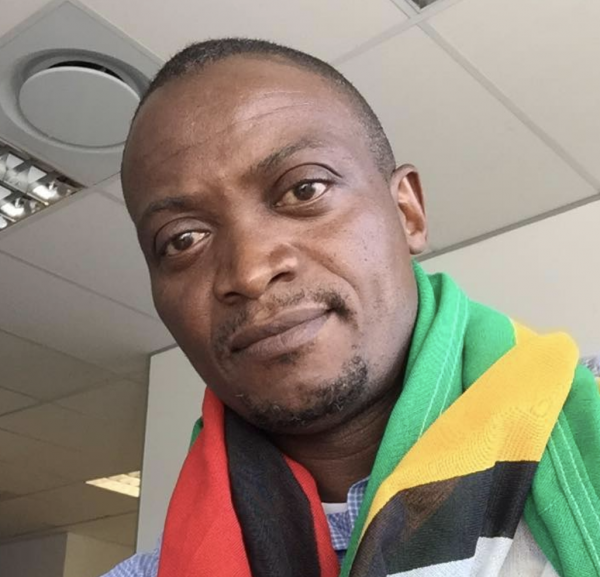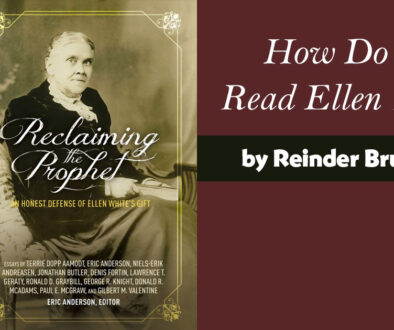Evaluating the Outcome of the Paul Ratsara Degree Inquiries
by Alvin Masarira | 16 May 2018 |
A number of Seventh-day Adventist church matters are ending up in the public courts of law around the world, even when the contesting parties are all members, entities and institutions of the church. This though the Bible and spirit of prophecy counsel against this. The biblical testimony in Matthew 18 and 1 Corinthians 6 clearly discourages members from going to court to solve their problems. Instead, it is recommended that church members resort “to use the procedures and authority of the church to reach a settlement.” According to 101 Questions Adventists Ask by Bert B. Beach and John Graz, Paul essentially says, “Christians should make every effort to safeguard the unity and honor of the church.” Ellen G. White gives similar advice: “Lawsuits between brethren are a reproach to the cause of truth. Christians who go to law with one another expose the church to the ridicule of her enemies…. By ignoring the authority of the church, they show contempt for God, who gave to the church its authority” (The Acts of the Apostles, p. 306). However, “for this to work, those involved in disputes must accept the authority of the Church.
The critical question (again, quoting from Beach and Graz) is often “what should a member of the SDA church do, if he/she is not happy with the ruling of the church internal processes?” This is a very complex matter which does not always have a simple answer. Each case is unique and has its own complexities and would need to be treated on its own merits.The matter becomes more complex if the two processes (church internal and external) result in different outcomes. Which of these two should church members consider credible? Should one’s perception on the credibility of the process depend on whether one is happy with the outcome, or is the church’s internal process always credible because of the Biblical counsel that discourages finding settlement outside the church structures?
In 2016, the Southern Africa Indian Ocean Division territory had to grapple with allegations that the then Division President Elder Paul Ratsara had compiled his thesis for a Doctor of Theology degree (ThD) with the University of South Africa (UNISA) with the help of a ghost writer. This ghost writer was allegedly a senior member of the SID leadership team. The matter was widely reported and the General Conference President, Elder Ted Wilson, had to travel to South Africa to be involved in its resolution.
It is not my intention to re-hash the matter, but to deal with a specific matter of concern which has recently arisen. It is my opinion that this concern places us as a church in a difficult position.
The SID Excom of 24 May 2016, which was chaired by the General Conference President, convened to deal with this matter. The meeting listened to various testimonies, and it has been alleged that in the meeting Elder Hopeson Bonya (now SID Vice President) came forward and confessed that he wrote five of the six chapters of Paul Ratsara’s dissertation. It was reported that the SID Excom voted a motion to “register displeasure at the way the doctorate was obtained by Paul Ratsara.” Credible reports state that official minutes for the meeting, the Action (#16-043) concerning registering displeasure against Ratsara’s qualifications read in full:
WHEREAS the SID EXCOM noted a detailed presentation from Paul Ratsara pertaining, inter alia, to support he received in the compilation of his ThD qualification obtained from UNISA; and NOTING that there may be some diverse interpretations on what would constitute possible excessive reliance on research support Paul Ratsara may have received in the compilation of his ThD Thesis; and NOTING further that, according to Paul Ratsara, the ThD qualification passed the institutional test of plagiarism by UNISA; VOTED in the context of the aforegoing and only limited thereto, to express the EXCOM’s displeasure to Paul Ratsara for the manner in which he acquired his ThD qualification.
At the end of the day’s proceedings Elder Ratsara offered to resign as SID President citing difficulty being able to serve in the face of what could be interpreted as a vote of no-confidence. A few days later the General Conference EXCOM accepted his resignation.
In early May this year, a letter dated 3 April 2018 appeared online, purportedly written by the Acting Registrar of UNISA (Professor Q.M. Temane). This letter states that the university has concluded its investigation into the allegations concerning a ghost writer. The letter says that “our investigations have revealed that there is no evidence to substantiate the claims that a ‘ghost writer’ wrote the chapters in question” and that Ratsara’s ThD degree is “in good standing.”
This is in direct contradiction to the sentiments expressed by the SID Excom in 2016 which led to the resignation of Elder Ratsara. And this leads to all kinds of questions such as, why did SID not institute a forensic investigation into the matter before bringing it to the Excom meeting? What was it that led the SID Excom to express displeasure in the manner Elder Ratsara acquired his ThD degree? Did UNISA have the same “evidence” that the SID Excom had as it conducted its investigation? Since the allegations about a ghost writer emanated from the SID, did UNISA request for assistance (or evidence) from the SID in its investigation? Will the UNISA investigation report be made available for all to see?
Without credible answers to these and other questions, many people will be torn between believing the UNISA outcome (which exonerates Elder Ratsara) and the SID expression of displeasure in the manner the degree was acquired. Because this expression led to his resignation, it can be assumed that whatever it was which displeased the SID Excom, it must have been of great significance.
Some church members would like to believe the UNISA process since it is the institution which issued the degree, while others would like to believe the SID outcome due to their allegiance to, and trust in, church processes. Unless the SID (which is essentially a part of the General Conference) or Elder Ratsara comment about this letter, we will continue to speculate on its implications or about whether the UNISA and SID outcomes are mutually exclusive. It is very possible that, based on the evidence they had at their disposal, each organisation (SID and UNISA) couldn’t have come to any different outcome.
To therefore assume that either the SID or UNISA were wrong in their conclusion ignores this critical fact and incorrectly assumes the two organisations should have collaborated in their investigation. It might have been good if they did, but it is possible that there was nothing compelling a collaborative investigation. Unless a collaborative investigation was conducted and the full UNISA investigation report is published, there will be continued speculation on this matter as well as on the credibility of both the SID and UNISA outcomes.
 Alvin Masarira is originally from Zimbabwe, and is a structural engineering consultant based in Johannesburg, South Africa. He and his wife Limakatso, a medical doctor, have three children.
Alvin Masarira is originally from Zimbabwe, and is a structural engineering consultant based in Johannesburg, South Africa. He and his wife Limakatso, a medical doctor, have three children.




